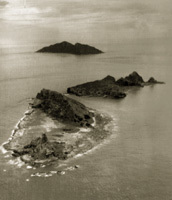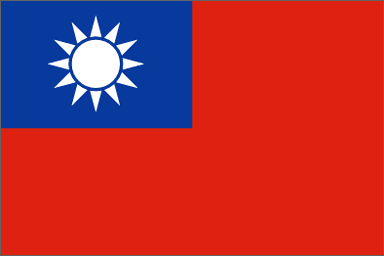Terrific piece on international rivalry in the 21st Century by Robert Kagan. Some things I could quibble with*, but I won’t get into specifics (This post is long enough, as it is!). Instead, I’ll try to limit my comments to where it dovetails with my own thoughts on China, the Third World and Taiwan.
Back in the ’90s, two books on international relations came into vogue. Of the two, Francis Fukuyama’s The End of History and the Last Man was the more optimistic, positing that ideology (or at least, ideological competition between countries) was dead. Dead, because virtually all nations on earth had come to the same conclusion that liberal democracy and capitalism were the way of the future. Since everyone thus agreed on the ultimate goal, the only matter left for countries to determine then, was the speed and precise paths they would take towards democratization and economic liberalization.
Samuel P. Huntington’s The Clash of Civilizations however, had a darker vision. Although he agreed that ideology was dead as a motivating force of international rivalry, Huntington didn’t see international rivalry therefore coming to a happy Fukuyaman end. Instead, Huntington theorized that sources of irritation, dispute and even warfare would increasingly be civilizational in nature.** (The author has always regretted the fact that for many, the word "clash" seems to invoke the latter connotation almost exclusively.)
And so Kagan begins, dismissing the basic premise of both these authors that nationalism and ideology are dead at all:
Today the nations of the West still cling to that vision. Evidence to the contrary — the turn toward autocracy in Russia or the growing military ambitions of China — is either dismissed as a temporary aberration or denied entirely.
The world has not been transformed, however. Nations remain as strong as ever, and so too the nationalist ambitions, the passions, and the competition among nations that have shaped history. The world is still “unipolar,” with the United States remaining the only superpower. But international competition among great powers has returned, with the United States, Russia, China, Europe, Japan, India, Iran, and others vying for regional predominance. Struggles for honor and status and influence in the world have once again become key features of the international scene. Ideologically, it is a time not of convergence but of divergence. The competition between liberalism and absolutism has reemerged, with the nations of the world increasingly lining up, as in the past, along ideological lines.
Thus he begins explaining the unipolar world as he sees it, then goes on to describe the nationalistic predominance various countries are seeking. Of particular interest for this blog is what he has to say regarding China and Japan:
National ambition drives China’s foreign policy today, and although it is tempered by prudence and the desire to appear as unthreatening as possible to the rest of the world, the Chinese are powerfully motivated to return their nation to what they regard as its traditional position as the preeminent power in East Asia. They do not share a European, postmodern view that power is passé; hence their now two-decades-long military buildup and modernization. Like the Americans, they believe power, including military power, is a good thing to have and that it is better to have more of it than less. Perhaps more significant is the Chinese perception, also shared by Americans, that status and honor, and not just wealth and security, are important for a nation.
Japan, meanwhile, which in the past could have been counted as an aspiring postmodern power — with its pacifist constitution and low defense spending — now appears embarked on a more traditional national course. Partly this is in reaction to the rising power of China and concerns about North Korea ’s nuclear weapons. But it is also driven by Japan’s own national ambition to be a leader in East Asia or at least not to play second fiddle or “little brother” to China. China and Japan are now in a competitive quest with each trying to augment its own status and power and to prevent the other’s rise to predominance, and this competition has a military and strategic as well as an economic and political component.
Elsewhere, he points out one possible ironic outcome to China’s efforts to become the local hegemon:
…even China, which seeks gradually to supplant the United States as the dominant power in the region, faces the dilemma that an American withdrawal [from Asia] could unleash an ambitious, independent, nationalist Japan.
His assessment of the role of ideology is particularly worth the read:
Complicating the equation and adding to the stakes is that the return to the international competition of ambitious nations has been accompanied by a return to global ideological competition. More precisely, the two-centuries-old struggle between political liberalism and autocracy has reemerged as a third defining characteristic of the present era.
The Cold War may have caused us to forget that the more enduring ideological conflict since the Enlightenment has not been between capitalism and communism but between liberalism and autocracy. That was the issue that divided the United States from much of Europe in the late eighteenth and early nineteenth centuries, and it divided Europe itself through much of the nineteenth century and into the twentieth. The assumption that the death of communism would bring an end to disagreements about the proper form of government and society seemed more plausible in the 1990s, when both Russia and China were thought to be moving toward political as well as economic liberalism. Such a development would have produced a remarkable ideological convergence among all the great powers of the world and heralded a genuinely new era in human development.
But those expectations have proved misplaced. China has not liberalized but has shored up its autocratic government. Russia has turned away from imperfect liberalism decisively toward autocracy. Of the world ’s great powers today, therefore, two of the largest, with over a billion and a half people, have governments that are committed to autocratic rule and seem to have the ability to sustain themselves in power for the foreseeable future with apparent popular approval.
Many assume that Russian and Chinese leaders do not believe in anything, and therefore they cannot be said to represent an ideology, but that is mistaken. The rulers of China and Russia do have a set of beliefs that guide them in both domestic and foreign policy. They believe autocracy is better for their nations than democracy. They believe it offers order and stability and the possibility of prosperity. They believe that for their large, fractious nations, a strong government is essential to prevent chaos and collapse. They believe democracy is not the answer and that they are serving the best interests of their peoples by holding and wielding power the way they do. [emphasis added throughout]
Kagan examines the ideological self-interest these two autocracies have in the principle of non-interference in other autocrats’ affairs:
Autocrats can hardly be expected to aid in legitimizing an evolution in the international system toward “limited sovereignty” and “the responsibility to protect.” … China, after all, has been a victim of international sanctions imposed by the U.S.-led liberal world, and for killing far fewer people than the governments of Sudan or Zimbabwe. Nor do China ’s rulers forget that if the liberal world had had its way in 1989, they would now be out of office, probably imprisoned, possibly dead.
[…]
To ask one dictatorship to aid in the undermining of another dictatorship, however, is asking a great deal. Chinese leaders will always be extremely reluctant to impose sanctions on autocrats when they themselves remain subject to sanctions for their own autocratic behavior. [emphasis added throughout]
Here, he admits the odd exception:
They may bend occasionally so as to avoid too-close association with what the West calls “rogue regimes.”
But on the whole:
Neither Russia nor China has any interest in assisting liberal nations in their crusade against autocracies around the world. Moreover, they can see their comparative advantage over the West when it comes to gaining influence with African, Asian, or Latin American governments that can provide access to oil and other vital natural resources or that, in the case of Burma, are strategically located. Moscow knows it can have more influence with governments in Kazakhstan and Turkmenistan because, unlike the liberal West, it can unreservedly support their regimes. [emphasis added]
This is an old observation, dating at least as far back as the Peloponnesian Wars, when Spartan oligarchs preferred foreign oligarchic allies, while Athenian democrats were more comfortable with democratic ones. Closer to our own time, how many communist allies did the Soviets ever abandon during the Cold War? The democratic West was certainly far quicker in judging the failings of IT’S authoritarian allies.
Because of this comparative advantage autocrats have in supporting other autocrats, Kagan predicts an authoritarian resurgence:
…the more autocracies there are in the world, the less isolated Beijing and Moscow will be in international forums such as the United Nations…The general effect of the rise of these two large autocratic powers, therefore, will be to increase the likelihood that autocracy will spread in some parts of the world. This is not because Russia and China are evangelists for autocracy or want to set off a worldwide autocratic revolution. It is not the Cold War redux. It is more like the nineteenth century redux…The great-power autocracies will inevitably offer support and friendship to those who feel besieged by the United States and other liberal nations. This in itself will strengthen the hand of autocracy in the world. Autocrats and would-be autocrats will know they can again find powerful allies and patrons, something that was not as true in the 1990s.
It is in this light that I view China’s current diplomatic charm offensive in the Third World. If YOU were an authoritarian African ruler bent on preserving your own power, who would you rather receive aid and support from? Western nations, which attach strings and all kinds of benchmarks and requirements regarding corruption, human rights, economic liberalization and democratization? Or China, which doesn’t? This isn’t a criticism of the strings that Western countries place upon aid – those requirements were implemented for good reasons. Western taxpayers have seen too much of their money disappear into the bank accounts of kleptocrats, and aren’t eager to vote for governments that persist in looking the other way. Western politicians have to explain to hostile electorates why their money seems to be propping up disreputable dictators; Chinese politicians don’t.
China DOES have a comparative advantage in winning over Third World regimes, at least in the short and medium terms. And no doubt about it, that is something that bodes ill for Taiwan’s efforts to retain its diplomatic partners.
Getting back to Kagan’s article, he later examines China’s weaknesses:
It is easy to look at China and Russia today and believe they are simply getting stronger and stronger. But one should not overlook their fragility. These autocratic regimes may be stronger than they were in the past in terms of wealth and global influence. But they do still live in a predominantly liberal era. That means they face an unavoidable problem of legitimacy. They are not like the autocracies of nineteenth-century Europe, which still enjoyed a historical legitimacy derived partly from the fact that the world had known nothing but autocracy for centuries. To be an autocrat today is to be constantly concerned that the powerful forces of liberalism, backed by a collection of rich, advanced nations, including the world’s only superpower, will erode or undermine the controls necessary to stay in power. Today’s autocracies struggle to create a new kind of legitimacy, and it is no easy task. The Chinese leaders race forward with their economy in fear that any slowing will be their undoing. They fitfully stamp out signs of political opposition partly because they live in fear of repeating the Soviet experience. Having watched the Soviet Union succumb to the liberal West, thanks to what they regard as Mikhail Gorbachev’s weakness and mistakes, they are determined neither to show weakness nor to make the same mistakes.
[…]
Leaders in Beijing rightly fear they are riding a tiger at home, and they fear external support for a political opposition more than they fear foreign invasion. Even promoting nationalism as a means of enhancing legitimacy is a dangerous business, since in Chinese history, nationalist movements have [often] evolved into revolutionary movements. [emphasis added throughout]
To these, I would add one other internal weakness as well (which isn’t original, but what the hey). All that aid that China gives, it gives without consent of Chinese citizens. If you’re a poor Chinese peasant, and you hear your government is giving away heaps of money to foreigners, you’re probably not going to care about how much "goodwill" or "soft power" all that largesse is buying your country. No, you’re gonna look at your less-than-fancy hovel one day and you’re gonna get mad. Real mad. But unlike the electorate in democratic countries though, when YOU get mad, you don’t get the choice to vote for some mean, tight-fisted, old guy who promises to cut back foreign aid. Only choice YOU ever get is to bottle up that rage deep down inside…or grab a pitchfork and join the mob stormin’ the castle.
(No matter what kind of guff some KMT-affiliated papers tell us about "stability" and "harmonious societies", the most harmonious society in the world is the one where change happens WITHOUT people breakin’ the china.)
In addition, China’s foreign aid causes a couple of external problems for it as well. First, ANY country (Taiwan included) that ties its economy too closely with that of China renders itself vulnerable to shocks in the Chinese economy. A Chinese recession, or even a sufficiently worrisome Chinese product scare, has the potential to quickly turn public opinion in a dependent Third World country against its benefactor. And secondly, Chinese support of repressive governments is likely to stir anti-Chinese feelings in members of the opposition in the long-term, while aid to corrupt governments could do the same amongst ordinary people.
A single example should suffice. Earlier this year, Hu Jintao went on what was billed a triumphant tour of Africa. That’s it, we’re DOOMED, said Taiwan’s China Post. Yet one thing I noticed was that the opposition in one country (Zaire, I believe), REFUSED to meet with him. Now, THERE’S a sign all that aid isn’t making everybody happy.
Now, should that opposition win, or ever seize power, what then? Doubtless the Chinese will be quick to offer support to the new government, but they may be surprised to find it spurned. People sometimes have harsh memories about the foreigners who came and armed the local tyrant; who came and trained the secret police that kept the populace down.
And that’s why I think the prospects for Taiwan’s diplomatic relations with the Third World aren’t so bleak. Some countries are going to get absolutely BURNED by China, make no mistake of that. And when that happens, Taiwan will still be around. Around to maybe grab an ally or two.
* This criticism, for example, may arguably be true; however, the claim by the same author that China is not an autocracy but in fact a "one party meritocracy" seems a bit further off the mark.
** Conversely, Huntington believes civilizational SIMILARITIES will be a powerful unifying factor in the years to come. I’ve often thought that Taiwan serves as a kind of crucible for his theory, poised as it is between democratic independence or unification with a civilizationally-similar autocracy. If ideology is truly dead, then the theory predicts Taiwan’s ultimate unification with China, no matter what China’s political make-up. But if ideology yet lives, then Taiwan will prefer democratic independence (be it legal or de facto), for at least as long as China remains authoritarian.
UPDATE (Aug 5/07): The country where the opposition refused to meet Hu Jintao may have been Zambia, not Zaire.



